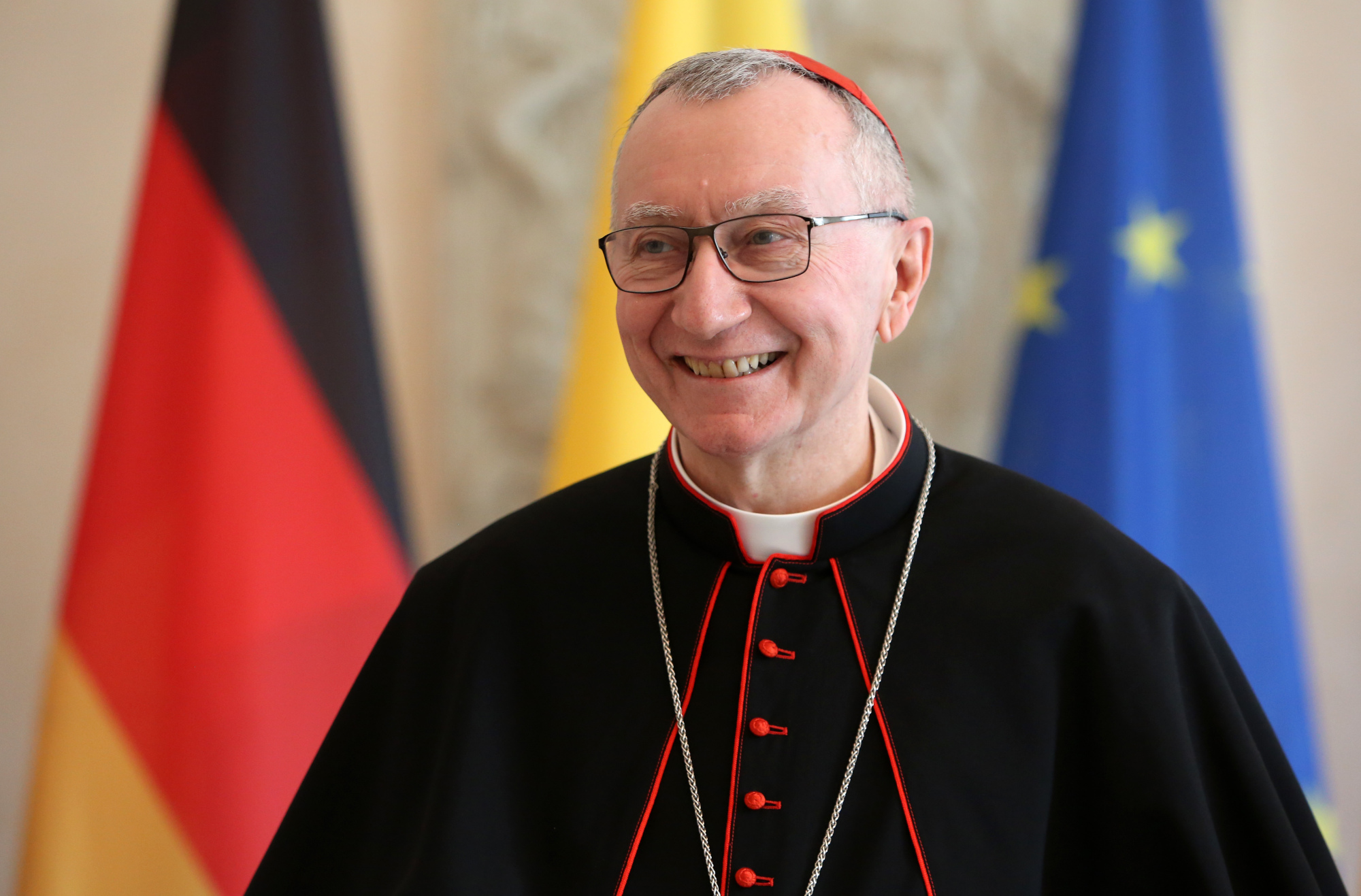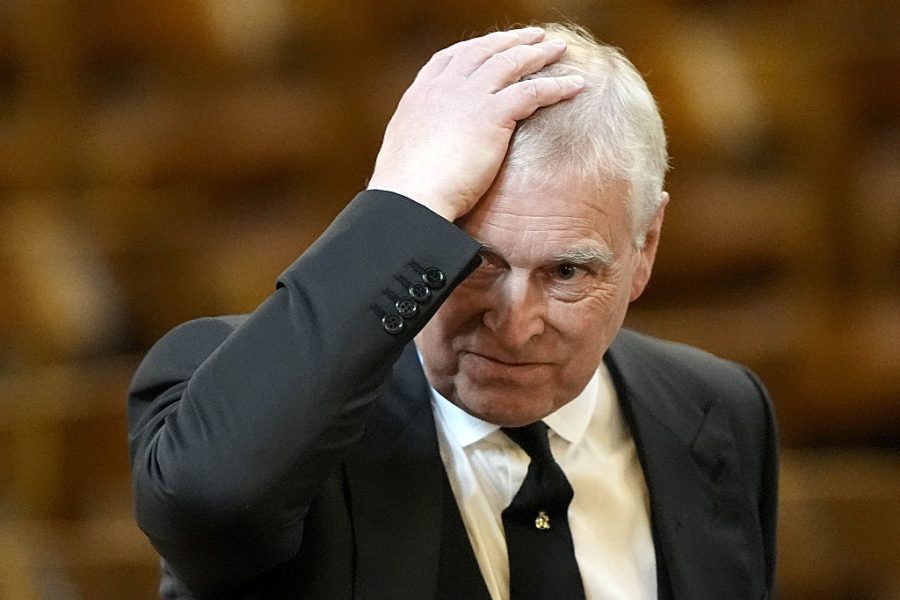The 133 cardinal electors participating in the conclave entered the Sistine Chapel yesterday, singing Veni Creator Spiritus. As they conducted their first vote – which resulted in black smoke – they were no doubt unable to avoid contemplating the highly damaging stream of revelations that have plagued the frontrunner to be the next pope, Cardinal Pietro Parolin.
The cardinals will be locked inside the chapel surrounded by Michelangelo’s astounding frescoes – incommunicado with the world but not with God – until two thirds of them coagulate around a single name. In the 13th century this process once took 1,006 days. But in the past 150 years the longest conclave has lasted five days. There was only one ballot yesterday but will be four on subsequent days.
A highly damaging series of revelations have plagued the frontrunner to be the next pope, Cardinal Pietro Parolin
Parolin – Secretary of State throughout the papacy of Pope Francis – remains the bookmakers’ favourite – despite the damning press coverage which it must be said many Italian media outlets have done their best to ignore.
Most damaging have been disclosures relating to Parolin’s role in the Vatican’s disastrous £300 million purchase of a former Harrods car show-room in Sloane Avenue, Chelsea, between 2014 and 2018. The Vatican’s aim was to get permission to change the site from office to residential use and make a killing. But it never came to pass even though this was granted in 2016 by Kensington and Chelsea Borough Council.
In 2022, the Vatican was forced to sell the impressive Art Deco building for £186 million – a loss of £114 million.
This led to the trial of Cardinal Angelo Becciu, Parolin’s deputy in those years, who was sentenced in 2023 to five and half years for fraud and embezzlement. Nine others were tried with him, only one acquitted. Becciu was the first cardinal in history to be tried in a Vatican criminal court. Sentence was deferred as he appealed.
Many commentators in Italy are convinced that Becciu is the victim of a grave miscarriage of justice.
They say that the huge losses incurred in the affair of il palazzo londonese were the result of incompetence, not crime, at least in the case of Becciu, and the others in the Secretariat involved in the operation. But if Becciu is guilty, then so must they all be, they say. But if Parolin and the others are innocent, then so must be Becciu. They also wonder just what was Becciu’s motive if he did not, as the court accepted, make any money out of his crimes?
Last week, the Rome daily Il Tempo published a memorandum written in November 2018 to explain to senior figures in the Secretariat such as Parolin the intricacies of the complex deal. It involved the Vatican paying £40 million to the investment fund that owned the Chelsea building for the remaining stake. I too am in a position today to reveal another embarrassing letter signed by Parolin in 2016 related to a bank loan from Credit Suisse regarding the same building.
The Vatican had decided to buy all the shares because many in the Curia had concluded that Raffaele Mincione, the London-based Anglo-Italian beneficial owner of the fund, was using it as a cash cow.
The new deal, however, proved even worse, possibly because Gianluigi Torzi, the broker the Vatican took on to buy those shares via an investment fund he had set up in Luxembourg, kept 1,000 of the 31,000 shares. And his shares were the only ones with voting rights.
To get out of this latest mess, the Vatican was forced to pay Torzi €15 million (£13 million). Mincione and Torzi stood trial with Becciu: Mincione got five and a half years for fraud and embezzlement (he was cleared in February this year); Torzi was sentenced to six years. He has also appealed.
Pope Francis had made Becciu a cardinal in May 2018 and in June promoted him to be Prefect of the Congregation for the Causes of Saints and so he was not involved at all in this deal.
The typed memorandum, presented three days after the framework agreement but ten days before the sale agreement, contains a hand-written note at the bottom signed by Parolin.
He writes: ‘Having read this memorandum, having had assurances about the strength of the operation (which would be advantageous for the Holy See), its transparency and the absence of reputational risks (indeed, those linked to the management of the Fondo Gof are now resolved), I am in favour of signing the contracts.’
The Fondo Gof was the investment fund owned by Mincione whose remaining shares in the former Harrods car showroom the Vatican bought.
This letter demonstrates that Parolin not only knew what was going on but that he approved it.
The letter signed by Parolin I have been passed is dated 21 December 2016 and is addressed to Credit Suisse which had lent the Vatican the money to make the initial purchase of the 45 per cent stake in the Chelsea property using as collateral money derived from donations.
In the letter, the Vatican Secretary of State – number two to the Pope – confirms a loan from the bank’s Lugano branch to refinance the existing loan and it also informs the bank that Cardinal Becciu is granted the power to use the money as he sees fit.
‘There will be no limit whatsoever as far as concerns the use of the above mentioned credit,’ Parolin adds.
‘Lastly, we confirm that S.E Mons. Angelo Becciu, Substitute to the Secretariat of State, can validly sign, in the name of and on behalf of the Secretariat of State – General Affairs Section – all documents regarding this credit contract (Attachment 1) with Credit Suisse (Switzerland) S.A., including the collateral pledge (Attachment 2) in guarantee of the credit in question, to be finalised at the conclusion of the investment operation.’
This letter, accompanied by a covering note signed by Becciu, shows that Parolin had complete faith in what his deputy was doing. I am told it comes from the huge quantity of documents the prosecution was obliged to deposit at the Vatican court but which it conveniently never produced – likewise the 2018 memorandum.
Il Tempo also published an identically worded letter dated 10 July 2013 but signed by then Secretary of State, Cardinal Tarcisio Bertone, about the first Credit Suisse loan – accompanied as in the 2016 letter by a covering letter from Becciu who had been Substitute Secretary of State since 2011.
Nico Spuntoni, Vaticanologist and journalist, tells me: ‘The investment may well have been a bad mistake but not an attempt by Becciu to defraud the Secretariat of State… Later Parolin would complain about how opaque the London deals all were. Why didn’t he say that at the time?’
Indeed, it was Parolin who wrote in desperation to Jean-Baptiste De Franssu, president of the Institute of Religious Works (IOR) – the Vatican’s bank – asking for a €150 million (£128 million) loan to the Secretariat of State to pay off the mortgage on the London property. The letter was headed ‘Riservata-Urgente’ (Confidential-Urgent).
Parolin said it was ‘a valid investment’ but the loan was needed to pay off the mortgage whose highly unfavourable interest rate fluctuated between 10 and 12 per cent. The ‘needs of the Holy See’ required the loan, he said.
In other words, the Pope’s number two was telling the president of the IOR that Becciu’s investments were ‘valid’.
It was this that caused the president of the IOR, de Franssu, to lodge a denuncia (complaint) with the Vatican Criminal Court of First Instance in 2019 which would cause the investigation that led to the trial of Becciu and the other nine.
Parolin, though, was never interrogated by the Vatican court’s prosecutors.
On Friday, the High Court in London delivered Parolin another blow when it ordered the Vatican to pay €3.5 million to Mincione to cover half his costs in a case he had brought against the Vatican.
He had sought 31 declarations from the judge, Mr Justice Knowles, that he had acted in good faith and done nothing wrong in the 2018 sale of the remaining shares to the Vatican. The Vatican sought instead to convince the court otherwise.
The judge, however, sided with Mincione in his judgement delivered in February: he granted him 29 of the declarations sought but said he had not acted in good faith. He had acted in a misleading but not dishonest or criminal way especially over the value of the property.
But the judge was highly critical by implication of the Vatican court for finding Mincione guilty of fraud and embezzlement.
Becciu, meanwhile, abandoned his crusade to take part in the conclave last week after Parolin suddenly produced out of the blue two letters signed by Pope Francis barring him from doing so. Becciu had said he would only agree not to take part if such a letter from the Pope came to light.
Many feel that Parolin and other powerful cardinals had behaved shoddily and incompetently on the issue. Why did these letters only come to light at the eleventh hour? Why were there two of them, one of them written when Pope Francis was in hospital at death’s door? Yet Parolin, who is neither a liberal nor conservative, remains the Bookies’ favourite to be elected Pope regrdless – as compromise candidate and skilled navigator per eccellenza.









Comments